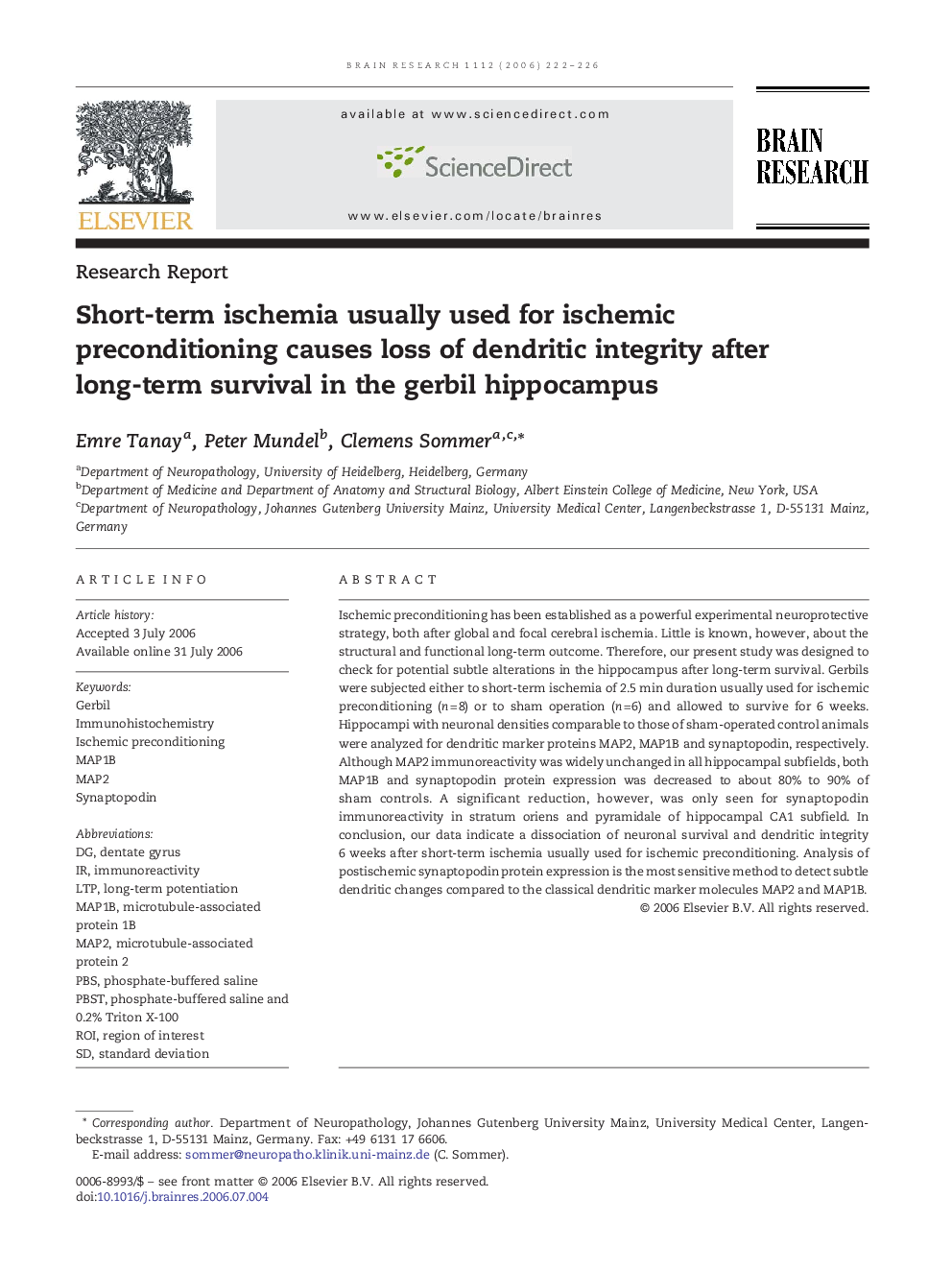| Article ID | Journal | Published Year | Pages | File Type |
|---|---|---|---|---|
| 4332274 | Brain Research | 2006 | 5 Pages |
Ischemic preconditioning has been established as a powerful experimental neuroprotective strategy, both after global and focal cerebral ischemia. Little is known, however, about the structural and functional long-term outcome. Therefore, our present study was designed to check for potential subtle alterations in the hippocampus after long-term survival. Gerbils were subjected either to short-term ischemia of 2.5 min duration usually used for ischemic preconditioning (n = 8) or to sham operation (n = 6) and allowed to survive for 6 weeks. Hippocampi with neuronal densities comparable to those of sham-operated control animals were analyzed for dendritic marker proteins MAP2, MAP1B and synaptopodin, respectively. Although MAP2 immunoreactivity was widely unchanged in all hippocampal subfields, both MAP1B and synaptopodin protein expression was decreased to about 80% to 90% of sham controls. A significant reduction, however, was only seen for synaptopodin immunoreactivity in stratum oriens and pyramidale of hippocampal CA1 subfield. In conclusion, our data indicate a dissociation of neuronal survival and dendritic integrity 6 weeks after short-term ischemia usually used for ischemic preconditioning. Analysis of postischemic synaptopodin protein expression is the most sensitive method to detect subtle dendritic changes compared to the classical dendritic marker molecules MAP2 and MAP1B.
